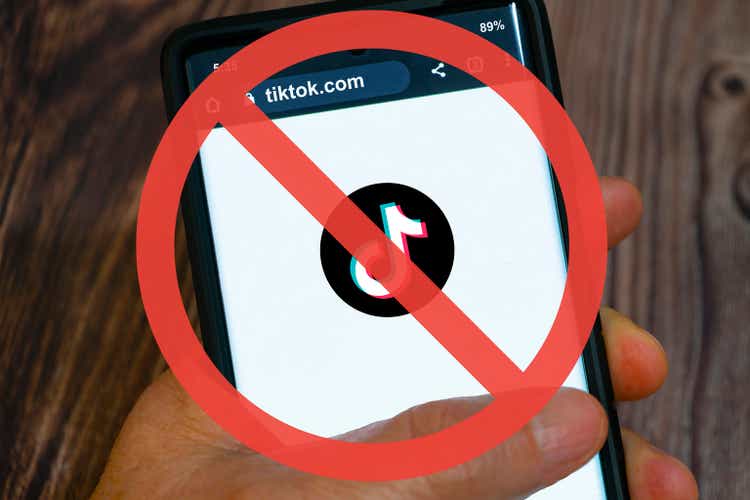
Richard Stephen/iStock via Getty Images
A federal court upheld the upcoming U.S. ban on social network TikTok (BDNCE), refusing to intervene after an appeal by the Chinese-owned service claiming the law was unconstitutional.
Stocks in rival social-media names reacted: Snapchat parent Snap (NYSE:SNAP) jumped up to 7%, while Facebook and Instagram’s parent, Meta Platforms (NASDAQ:META), increased gains beyond 2%. Alphabet was also higher in midmorning: (NASDAQ:GOOG) +1%, (GOOGL) +1%. And conservative-focused video platform Rumble (RUM) had risen more than 20% Friday ahead of the court’s ruling.
TikTok had sued the United States looking to stop a federal law — the Protecting Americans from Foreign Adversary Controlled Applications Act, signed by President Biden in April — calling for TikTok’s divestment from Chinese parent ByteDance vs. imposing a ban in U.S. app stores by Jan. 19.
“We recognize that this decision has significant implications for TikTok and its users,” concluded Judge Douglas Ginsburg of the U.S. Court of Appeals for the D.C. Circuit. “Unless TikTok executes a qualified divestiture by Jan. 19, 2025 — or the President grants a 90-day extension based upon progress towards a qualified divestiture … its platform will effectively be unavailable in the United States, at least for a time. Consequently, TikTok’s millions of users will need to find alternative media of communication.”
“That burden is attributable to the [People’s Republic of China’s] hybrid commercial threat to U.S. national security, not to the U.S. Government, which engaged with TikTok through a multi-year process in an effort to find an alternative solution,” he went on.
“The First Amendment exists to protect free speech in the United States. Here the Government acted solely to protect that freedom from a foreign adversary nation and to limit that adversary’s ability to gather data on people in the United States.”
With the ban set to take in effect in just over six weeks, TikTok (BDNCE) is now expected to appeal the decision to the U.S. Supreme Court.
And assuming the ban survives to Jan. 19, it’s still unclear what happens in the upcoming second Trump administration. Trump famously pushed to ban the app during his first term as president, but warmed up to it particularly during his campaign for the 2024 election, and is expected to try to stop the ban from taking effect after he assumes the presidency Jan. 20.
